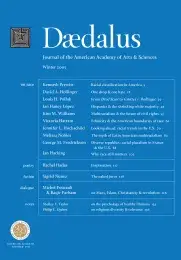The myth of Latin American multiracialism
Many Latin American nations have long proudly proclaimed a multiracial ideal: unlike the United States, countries like Brazil and Mexico have celebrated the mixing of races, and claimed to extend equal rights and opportunities to all citizens, regardless of race. As a result of the region’s regnant faith in racial democracy, it has long been widely assumed that Latin American societies are nondiscriminatory and that their deep economic and social disparities have no racial or ethnic component. Yet new statistical evidence (a byproduct of democratization) suggests that most of the region’s societies have yet to surmount racial discrimination. At the very time that some in the United States have timidly embraced multiracialism as a fitting ideal for North Americans, Latin American critics have begun to argue that multiracialism, like racial democracy, functions as an ideology that masks enduring racial injustice and thus blocks substantial political, social, and economic reform.
Latin American elites have always been deeply concerned about the racial stocks of their populations and have always prized the European antecedents of their peoples and cultures–just like their counterparts in the United States. But at the same time, and unlike their U.S. counterparts, Latin American political and cultural leaders in the first half of the twentieth century viewed their societies as unique products of racial intermingling. Sensing that such racial mingling might help define an emergent nationalism, intellectuals and statesmen argued that extensive racial mixture had resulted in the formation of new, characteristically ‘national’ races.
For example, the Mexican philosopher José Vasconcelos (1882–1959) famously celebrated the idea of racial mixture by arguing that all Latin Americans, and not just Mexicans, were a raza cósmica (cosmic race) comprised of both Spanish and indigenous peoples. But his conception of mixture left no doubt as to the eminence to be accorded to peoples of European descent. As scholars have observed, the idea of a cosmic race at once gave indigenous peoples a place within a new racial identity while simultaneously relegating all things Indian to a backward and romantic past.
. . .
